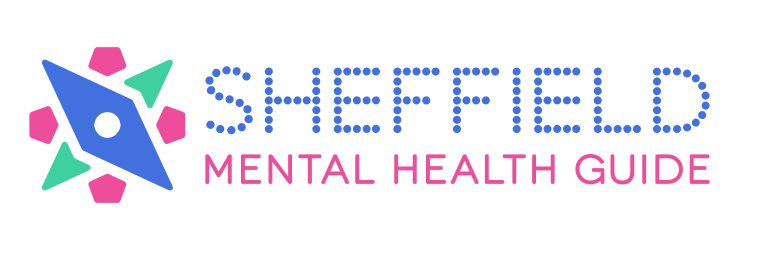Severe Mental Illness: Your Health
It is important to look after your physical health as well as your mental health if you have severe mental illness.
This information is for:
- anyone with severe mental illness (that means someone who has been diagnosed with schizophrenia, bipolar disorder or other psychosis or is having lithium therapy), and
- their carers, friends and family.
We all have to look after our health, but people with severe mental illness need to be a little extra careful because you may be more likely to develop physical health issues than the general population.
The good news is:
- You’re entitled to an annual physical health check to get advice and support
- There are plenty of resources and information on how we can look after our physical health. These resources are available below.
Encouraging you to get your annual health check
You are entitled to a free annual health check, which is a routine appointment that many people go to. Sometimes our mental health can feel like the most important thing to concentrate on, but our physical health is just as important. Looking after your physical health can be beneficial to helping your mental health.
You may feel anxious about attending an annual health check, but this page is here to reassure you about what to expect, and what you and health professionals can do to make your annual health check more comfortable for you.
What to expect from your annual health check
Your physical health check will be carried out by either your GP surgery or a health professional from a local service, such as a mental health service. If your doctor’s surgery hasn’t contacted you about your physical health check, you can contact them about it, or a health care worker that you see.
The physical health check is to help pick up on signs of any health conditions that you may be at risk of. Early action can help to stop these issues from becoming more serious. This is why it is still important to attend your appointment even if you don’t feel unwell because it can prevent any illness from becoming more serious by taking early action if this is needed.
A check involves at least 6 different things.
- Blood pressure – Your blood pressure will be checked using a blood pressure machine. Usually this involves a cuff being wrapped around your arm, which is inflated until the circulation is briefly cut off (this is completely safe!). It will then deflate. This might feel strange, and you may have some tingling in your fingers, but it shouldn’t hurt.
- Height and weight – Your height and weight will be taken during your appointment. It is okay to not look at your weight on the scales while this is happening, and to ask the doctor not to tell you how much you weigh if this is triggering for you
- Blood tests – Your blood glucose and blood lipid levels will be checked by having a blood sample taken. A blood glucose test checks to see if your blood sugar levels are healthy and a lipid test will check the level of cholesterol in your blood.
- Further information about blood samples – please see here for more information on what to expect. If you don’t like needles, you can tell the person taking the sample so they can help you feel more at ease.
- Smoking – You will be asked whether you smoke. Please note, if you are taking antipsychotics and you wish to change your smoking habits, please consult with your GP. This is because smoking can impact on the dosage required for your medication.
- Alcohol – You will be asked whether you drink alcohol, and if so, how much.
You may also be asked about things like any medication that you are taking, your diet, exercise and physical activity, and if you have taken up any offers for national screening programmes (such as cervical screening). It’s important to remember to be as honest as possible when being asked questions, the healthcare professional carrying out your physical health check won’t judge you based on your answers. They are there to support and help you.
You’ll be offered advice about how you can improve your health and any follow up action that is needed after the check.
Reasonable adjustments
Healthcare workers have to be flexible to help people with mental illness use their service. You can ask for changes in the way they support you. This is called making reasonable adjustments and it is required under the Equality Act 2010.
This should happen when you book and attend your annual physical health check, when you visit the doctor’s surgery if you are unwell, when you go to the dentist or pharmacist, and at the hospital.
Things you can do include:
- Make sure your doctor knows about your diagnosis.
- Tell your doctor or healthcare worker what they can do to help make things easier for you.
- There might be things they can do differently to make you feel more relaxed.
- If you have a friend, family or carer they can also attend the appointment if you need their support.
Live Lighter Sheffield
Would you like to meet new people? Live a healthier and more active life? Take care of both your physical and mental health?
Live Lighter Sheffield is a 12-week group programme for adults, children, young people, and their families who want to learn simple ways to make healthier choices, manage their weight and gain confidence.
During the course they will cover topics such as tips and techniques for a healthier lifestyle and understanding the relationship between food and mood. The course includes practical and creative activities including local walks with a friendly and supportive atmosphere.
Find out more on their website or contact them by E: [email protected] or T: 0114 270 2043.
Carers, Family, Friends and Supporters
Do you provide practical and/or emotional support to someone living with severe mental illness? Sheffield Carers Centre offers a range of support and information services to all unpaid adult carers in Sheffield looking after a family member or friend who is frail, or has a disability, illness, or mental health problem.
Find out more: https://sheffieldcarers.org.uk/
Other information about looking after your health:
Taking control over our own physical health can feel empowering. There are numerous resources below, including on looking after your physical health during Covid-19, healthy eating, moving more and exercise, smoking, and links to information about local activities and events.
Information looking after your health during Covid-19:
Information about staying active and healthy eating:
Other useful information:
Information on health conditions:
These are some of the physical health conditions that people with severe mental illness may be more likely to experience:
Cardiovascular Disease – Click here for information from the NHS website
Respiratory Disease – Click here for information from the NHS website
Hypertension – Click here for information from the NHS website
Diabetes – Click here for information from the NHS website
This page was co-produced, last updated: 11/10/23
















